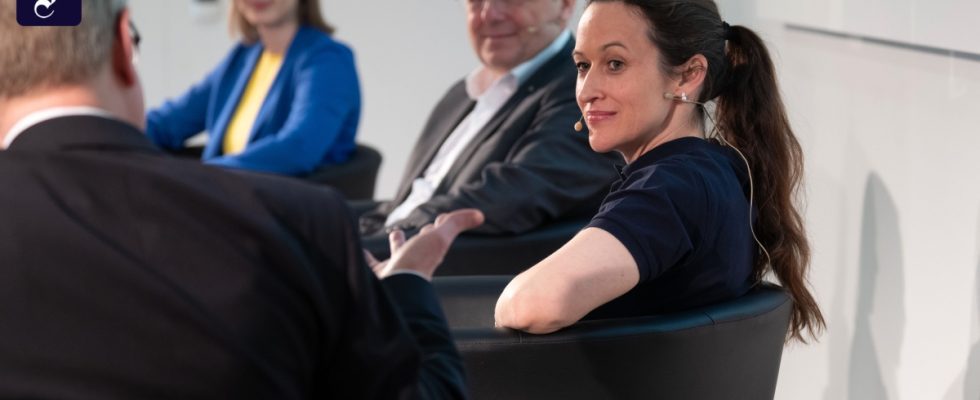fNicola Winter was five centimeters too small for Lufthansa. In the cockpit of a fighter jet, on the other hand, compact body dimensions are definitely not a disadvantage, and so the Munich native, who was born in 1985, made a career in the Bundeswehr: She was the second woman in Germany to fly the Eurofighter. But Winter wanted to go even higher: She studied aerospace engineering and has been a reserve member of the astronaut corps of the European Space Agency ESA since November last year.
Why does she want to fly into space? She is driven by a “mixture of pioneering spirit, thirst for adventure and the desire for positive inspiration,” says Winter in an interview with the FAZ department heads Sibylle Anderl and Manfred Köhler. She has a little daughter who should be “motivated to learn mathematics and physics”.
“Inspiration and fascination are tied to people,” says Jan Wörner, Hessian space officer and former ESA Director General. The former President of the TU Darmstadt believes that this is a strong argument for manned space flight, but he also understands that in this case in particular, costs, benefits and risks must be weighed against each other very carefully.
Ten euros a year for space travel
In general, it is easy for Wörner to justify why humans should venture into space and maintain outposts there. “Without space travel, climate change would probably not have been discovered,” he believes – only through missions to Venus, which is characterized by a strong greenhouse effect, was the dimension of this phenomenon understood.
Experiments in weightlessness also contribute to medical progress, for example in cancer and AIDS research. Everyday life would be unthinkable without satellite-supported navigation and timing systems; should they ever fail, the result would be a blackout, according to Winter, which would be comparable to a collapse of the power grid.
In view of the great importance of space technology, Europe spends relatively little on space travel, according to Wörner – not even ten euros per citizen per year. The annual budget of the ESA is modest at six to seven billion euros, compared to the approximately 50 billion available in the USA. Nevertheless, from a technical point of view, Europe need not shy away from the comparison. The Galileo satellite navigation system, for example, is three times more accurate than GPS, and the Ariane 5 rocket has long been the most reliable of its kind.
It is currently not very likely that Nicola Winter will climb into a space capsule because there are already two German astronauts. If ESA changes its staffing plan, she can start training, she says, “but until then my life goes on as normal.” Winter earns her money, among other things, as a university lecturer for emergency and crisis management.
Their view of the risks to which astronauts are exposed is correspondingly rational. For her, death is an “accepted occupational risk”, taken by “people who are extremely informed and know what they are doing”.
